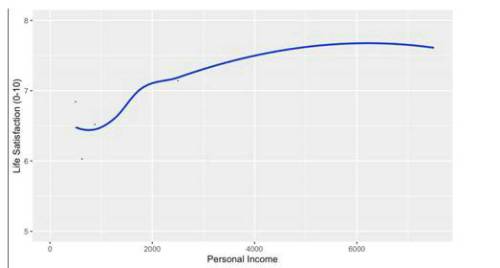For the first time, the exact amount of money that you need for a happy retirement has been calculated. The happiest retirees have an average monthly income of £1,700, according to a new study from Legal & General and the world-leading Happiness Research Institute, an independent Danish think tank focusing on wellbeing, happiness and quality of life. This equates to a pension pot of roughly £221,858 at retirement, providing an income of approximately £20,400 a year (which includes a full State Pension).
The Happiness Research Institute builds on measurement guidelines and benchmarks from the Organisation for Economic Co-operation and Development (OECD) and United Nations (UN) to measure people’s happiness. The report, produced in partnership with Legal & General, studied the lives of 3,000 retirees, to explore multiple wellbeing measures of people in later-life such as social connections, health and income to analyse the role money plays in a happy retirement.
It found that only 38% of retirees receive a monthly income of £1,700 or more, while a significant number live on much less. In fact, one in five retirees (22%) live on less than £1,000 a month, falling below the Pensions & Lifetime Savings Association's (PLSA) minimum standard for covering essential costs in later-life (£1,200 a month, £14,400 annually).
A key factor of happiness in retirement is financial status. But while higher incomes do coincide with greater happiness among retirees, the boost they bring begins to level off as income surpasses about £2,000 a month.
Other factors such as social connections and good health were also vital for people remaining happy as they age, regardless of income. The happiest retirees were also more likely to be satisfied with their day-to-day routines (80% versus 28%), free time (66% versus 25%), relationships with family and friends (70% versus 36%), and social lives (74% versus 23%). They were also much less likely to report severe loneliness (4% versus 18%).
Graph one: Average Life Satisfaction in Retirement per Personal Income
 Source: Legal & General / Happiness Research Institute 2024
Millions of retirees face unpredictable living costs which threaten their wellbeing
Source: Legal & General / Happiness Research Institute 2024
Millions of retirees face unpredictable living costs which threaten their wellbeing
After three years of cost-of-living pain, a significant number of retirees continue to face financial challenges which are likely to impact their wellbeing in retirement.
More than one in four people in retirement (27%) find that their finances are unpredictable and hard to keep track of, while one in five retirees have found themselves unable to meet the costs of housing (18%), food shopping (20%) and utilities (21%). Almost one in 10 (9%) are struggling to meet these costs on a regular basis.
Additionally, a third of retirees (34%) have found that financial constraints hinder their ability to socialise, potentially exacerbating loneliness which can further impact their wellbeing. Separate research by the provider, shows there is a sense of excitement about the freedom that comes with retirement, but also a worry about financial security.
Legal & General wants to see improved incomes for the next generation of retirees
Young people at the start of their pension saving journey, retiring sometime in the late 2060s would need an income of £77,145 to reach the satisfaction levels of today’s happiest retirees. To achieve this, the average person along with their employer would need to set aside nearly 10% (up from the current 8%) of their qualifying income every month, from the age of 22 until retirement.
But this assumes the saver has not had a career break and owns their own home. For the average person, the reality is that the contribution rate will need to be higher as many people will need to compensate against career breaks or periods of reduced income (i.e. for caring responsibilities). Renters who do not have property wealth to fall back on could need to contribute up to 21%.
Legal & General is exploring further solutions that will increase minimum workplace contributions over time to a level that will provide members with an adequate income in retirement.
Lorna Shah, Managing Director, Legal & General Retail Retirement comments: “Our collaboration with the Happiness Research Institute aims to give us a greater understanding of what people truly need to be happy in retirement, so that they can maintain and even improve their wellbeing as they get older. While strong social connections and good health play a vital role in a rewarding retirement, the study shows having a predictable income is key to unlocking the other elements of life that make us happy.
“Young adults today need more support to help them save and secure a more rewarding retirement in the future; a key step in achieving that is an increase in workplace pension contributions. We should also consider the role that other assets, such as property, might play in helping people supplement their pension pots.”
Meik Wiking, CEO, Happiness Research Institute said: “The study shows that money does indeed matter for happiness. In fact, money plays a crucial role. Being without sufficient resources to make ends meet causes worry and stress and a lower quality of life for people in the UK. That is especially the case for people in retirement. The good news is that there are ways we can improve happiness levels by planning and saving for retirement.”
|


